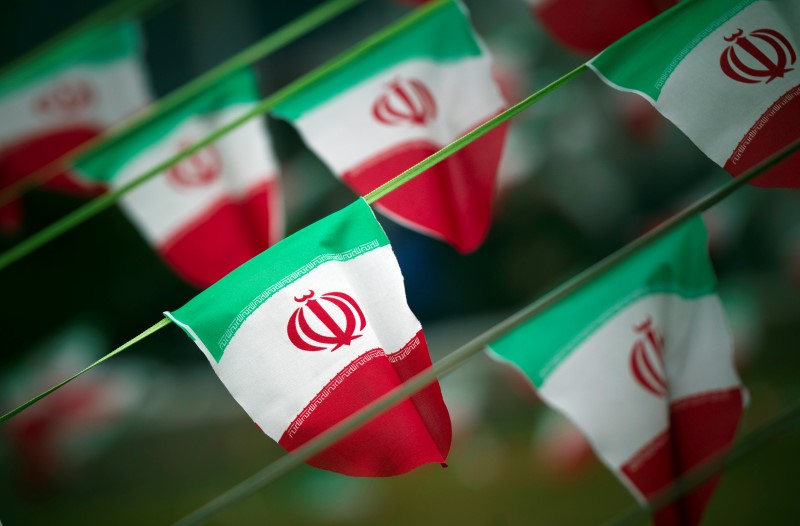By Louis Charbonneau, Jonathan Saul and Parisa Hafezi
UNITED NATIONS/LONDON/ANKARA (Reuters) - An international group that monitors money laundering worldwide is expected to decide this week to keep Iran on its blacklist of high-risk countries despite aggressive lobbying by Tehran to come off the list to help it access the global financial system, Western officials said.
The Financial Action Task Force (FATF), established in 1989 to combat money laundering and the financing of terrorism and weapons of mass destruction, compiles the list, which it regularly updates. Its 37 member states are meeting in South Korea.
"No changes to Iran's status on the blacklist are imminent, though I think perhaps we can expect some words of encouragement and recognition of Iran's attempts to make progress," said one Western official familiar with FATF discussions, who asked not to be named. Two other Western officials concurred this week with the opinion that Iran would not be taken off the blacklist at this time.
Tehran has complained that it is not getting economic benefits it was promised during last year's negotiations on a nuclear deal with six major powers.
As a result of that agreement, many international sanctions against Iran were lifted. The United States, however, still has sanctions in place that prohibit trade with Iran in dollars and Iranian access to New York's financial system.
Financial Action Task Force spokeswoman Alexandra Wijmenga-Daniel responded to a request for comment by saying the group would publish an update on high-risk and non-cooperative jurisdictions after the session later this week.
Getting off the FATF blacklist, which also lists North Korea, would remove a major hurdle Iran faces in dealing with outside banks and other financial institutions. Iranian and Western officials have said that is why Tehran has been pushing hard to come off the list or at least to have the current FATF warning about it softened.
Paris-based FATF said earlier this year that it remained "particularly and exceptionally concerned" about what it called Iran's "failure to address the risk of terrorist financing and the serious threat this poses to the integrity of the international financial system."
The burden of proof is on Iran to show that these concerns are unfounded.
Iran has said such criticism is unfair and contributes to the reluctance of major Western banks and financial institutions to do business with it, despite encouragement from U.S. President Barack Obama's administration. Many large banks are disinclined to deal with Iran for fear of violating remaining U.S. sanctions.
Since January, Iran has secured banking links only with smaller financial institutions.
A spokeswoman for the European Union's foreign policy section declined to comment until the FATF meeting had ended. The United States also declined to comment, though a U.S. Treasury Department official said, "We are confident that the FATF will treat Iran fairly."
One Iranian official said there had been multiple meetings between senior Iranian and European officials in recent months "to help Iran get off the blacklist." He said the head of Iran's central bank had discussed the FATF issue with U.S. officials during a recent visit to the United States.
"We are very optimistic," he said.
Adding to the unwillingness of international businesses to work with Iran is apprehension over the powerful Islamic Revolutionary Guard Corps' (IRGC) hold on the economy.
The IRGC was the driving force behind Iran's nuclear program, its money laundering activities and its foreign military activities, and remains subject to extensive international sanctions.
Another Iranian official said the IRGC had hoped to use its front companies and banks to cash in after sanctions were lifted but was disappointed that foreign investors had shunned them.
Businesses are also wary about wading into Iranian waters until after the U.S. presidential election in November.
"If (Donald) Trump becomes the next president, then he says he'll tear up the Iran deal," a European official said. "Hesitancy on the part of business is understandable."
European banking sources told Reuters that regardless of Iran's status on the FATF blacklist, they are not ready to do business with Iran because of the high risks.
The United States has sought to assure international companies that doing legitimate business with Tehran is acceptable. Last month U.S. Secretary of State John Kerry told a meeting of bank executives in London that European banks should not fear punishment from the United States for resuming legitimate trade with Iran.

The European banking source, who was familiar with that meeting, said Kerry was told, "You may want the European banks to do business in Iran, but you do not let the U.S. banks do so. The message to the politicians is that most banks still see too many risks."